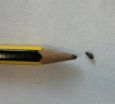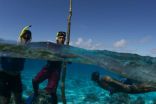(Press-News.org) Invasive species – plants, animals, and microbes introduced to regions beyond their native range – carry a global price tag of $1.4 trillion dollars. They are responsible for the loss of natural resources and biodiversity, damages to infrastructure, and an uptick in infectious diseases.
Not all non-native species pose a threat. Scientists around the world have spent the last several decades teasing apart the conditions that set the stage for debilitating invaders, like giant hogweed, zebra mussels, or gray squirrels. A number of hypotheses have emerged to help predict how natural areas will respond to introduced plants, animals, and microbes.
An analysis of 371 invasion studies using six dominant invasion hypotheses has revealed their predictive power is weakening. The paper's authors – Jonathan Jeschke, Lorena Gómez Aparicio, Sylvia Haider, Tina Heger, Christopher Lortie, Petr Pyšek, and David Strayer – found empirical support for all six hypotheses declining, with recent studies showing the lowest levels of support. Hypotheses that were too broad or omitted ecosystem interactions fared among the worst, plants proved easier to predict than animals, and, contrary to popular belief, diverse ecosystems were not inherently resistant against invaders. The study was published in the open-access journal NeoBiota.
The paper's authors comment: "The observed decline effect means our confidence in making sound policy and management decisions based on the six analyzed hypotheses is lower today than it was in the past. Scientists were overly optimistic about the predictive power of these hypotheses. Given that invasive species are an expensive and ever growing problem, this is a situation that needs to be addressed."
Similar "decline effects" have been noted in other disciplines, among them pharmacological research, psychology, and animal behavior. The effect has been attributed to publication bias, inadequate sample sizes, and a tendency of early tests of hypotheses to pick study organisms or systems where positive results are expected.
Lead author Jonathan Jeschke, of Technische Universität München, concludes: "The decline effect is both worrying and fascinating. It's a phenomenon that should be investigated across disciplines, as medical and psychological researchers have shown its effects can be strong, and it can distort the predictive power of hypotheses."
The paper's authors offer four solutions to improve current hypotheses in invasion biology: (1) Existing gaps in empirical tests of hypotheses should be filled. The study revealed crucial gaps in empirical studies, showing that most studies have focused on terrestrial plants but have ignored other organisms and aquatic habitats. (2) Existing hypotheses should be specified for groups of organisms and habitats. (3) Interactions of invasive species with their new ecosystems should be regularly considered. The study shows that hypotheses considering such interactions are better supported by empirical evidence than other hypotheses. (4) Revised hypotheses should be rejected if they do not work. Those hypotheses that still lack empirical support after specification for groups of organisms and habitats (solution 2), consideration of invader-ecosystem interactions (solution 3), or another form of revision should be discarded. Scientists should not waste time and resources to continue working with these hypotheses. Instead, fresh ideas and novel hypotheses are needed to further our understanding of biological invasions – something that is essential to effective management in today's rapidly changing world.
INFORMATION:
Original source:
Jeschke JM, Gómez Aparicio L, Haider S, Heger T, Lortie CL, Pyšek P, Strayer DL (2012) Support for major hypotheses in invasion biology is uneven and declining. NeoBiota 14: 1-20. doi: 10.3897/neobiota.14.3435
Posted by Pensoft Publishers.
Additional Information:
Kettunen M, Genovesi P, Gollasch S, Pagad S, Starfinger U, ten Brink P, Shine C (2009) Technical support to EU strategy on invasive alien species (IAS) – Assessment of the impacts of IAS in Europe and the EU. Institute for European Environmental Policy (Brussels, Belgium): 1-44 + Annexes.
Lehrer J (2010) The truth wears off. New Yorker Dec 13: 52-57.
Schooler J (2011) Unpublished results hide the decline effect. Nature 470: 437.
Losing stream in our battle to predict and prevent invasive species
2012-08-22
ELSE PRESS RELEASES FROM THIS DATE:
Survival without water: A key trait of an aquatic invader to spread
2012-08-22
Nowadays, an increasing number of rivers and lakes are being invaded by exotic snails, which come from remote regions, and even other continents. Such species represent a threat to native species, as they compete for food or space with them.
This is the case of the mudsnail Potamopyrgus antipodarum. This small aquatic snail is native to New Zealand, and has spread throughout rivers, lakes or streams in Europe, Australia, America and Asia. The invasion success of this mudsnail may be partly due to the ability of females to reproduce without participation of males (i.e. ...
Scientists quantify nanofiber health risk to workers
2012-08-22
Health risks posed to people who work with tiny fibres used in manufacturing industries could be reduced, thanks to new research.
Research into the health risks posed by nanofibres – used to strengthen objects from tennis rackets to airplane wings – has pinpointed the lengths at which these fibres are harmful to the lungs.
Nanofibres, which can be made from a range of materials including carbon, are about 1,000 times smaller than the width of a human hair and can reach the lung cavity when inhaled.
This may lead to a cancer known as mesothelioma, which is known to ...
Thinking about kids? Man, you gotta shed the kilos
2012-08-22
Australian scientists studying the impact obesity has on pregnancy, are urging men to get 'match fit' before conceiving to assist with fetal development.
Reproductive experts from the University of Melbourne's Department of Zoology have discovered that a father's obesity negatively impacts sperm, resulting in smaller fetuses, poor pregnancy success and reduced placental development.
While the health risks surrounding obesity and pregnancy have largely been centred on overweight mothers, scientists from the University of Melbourne are putting the onus on men to shape ...
How to act if there is a fire on the AVE
2012-08-22
Researchers at the University of Cantabria have used computer models to analyse the best way to evacuate the Spanish High Speed Train, AVE, in the case of fire. The involvement of the crew in organising the fast transfer of passengers, completing the process before the train comes to a halt and collective collaboration to assist those with reduced mobility are just some of the strategies to be followed.
"In the event of fire on an AVE, two stages should be defined: the first is pre-evacuation in which passengers are transferred from one coach to another while the train ...
Male mice exposed to chronic social stress have anxious female offspring
2012-08-22
BOSTON (August 22, 2012) —A study in mice conducted by researchers at Tufts University School of Medicine (TUSM) suggests that a woman's risk of anxiety and dysfunctional social behavior may depend on the experiences of her parents, particularly fathers, when they were young. The study, published online in Biological Psychiatry, suggests that stress caused by chronic social instability during youth contributes to epigenetic changes in sperm cells that can lead to psychiatric disorders in female offspring across multiple generations.
"The long-term effects of stress can ...
MR enterography is option for pediatric patients with Crohn disease
2012-08-22
Parents with children nine years old and older who have Crohn disease should ask their children's doctor about MR enterography as a replacement for small bowel x-rays or CT enterography, a new study indicates.
Children with inflammatory bowel disease must often undergo repeated examinations, which, with x-rays and CT, could lead to significant radiation exposure, said William A. Faubion, Jr., MD, one of the authors of the study.
"MR enterography does not require any radiation, however the patient does have to drink an oral contrast agent, must hold their breath at times ...
Johns Hopkins researchers return blood cells to stem cell state
2012-08-22
Johns Hopkins scientists have developed a reliable method to turn the clock back on blood cells, restoring them to a primitive stem cell state from which they can then develop into any other type of cell in the body.
The work, described in the Aug. 8 issue of the journal Public Library of Science (PLoS), is "Chapter Two" in an ongoing effort to efficiently and consistently convert adult blood cells into stem cells that are highly qualified for clinical and research use in place of human embryonic stem cells, says Elias Zambidis, M.D., Ph.D., assistant professor of oncology ...
Typical IBD patients not represented in research studies
2012-08-22
Major randomized controlled trials of new therapies for inflammatory bowel disease (IBD) are conducted on patients who are not typical of those who physicians see in day-to-day practice, according to a new study in Clinical Gastroenterology and Hepatology, the official clinical practice journal of the American Gastroenterological Association (AGA).
The two major, often debilitating, illnesses that are recognized as IBD are ulcerative colitis and Crohn's disease. The introduction of biologics — the most prescribed medications for IBD patients — have dramatically impacted ...
Deadly outbreak of West Nile virus highlights urgent need for more research, funding
2012-08-22
New Rochelle, NY, August 22, 2012–Mosquito-borne West Nile virus (WNV) caused 26 deaths already this year, and nearly 700 cases had been reported by mid-August according to the Centers for Disease Control and Prevention (CDC). WNV had become "old news" among the public and the media. Furthermore, funding to support research, training and education, and surveillance and vector control had waned. Now there is an urgent imperative to redouble our efforts to understand and control this dangerous virus. Vector-Borne and Zoonotic Diseases, a major peer-reviewed journal from Mary ...
In Fiji, marine protection gets local boost
2012-08-22
NEW YORK (August 20, 2012)—A new study by researchers from the Global Change Institute at the University of Queensland, the ARC Centre of Excellence for Coral Reef Studies at James Cook University, and the Wildlife Conservation Society has found that locally managed marine protected areas within Fiji are playing an increasingly important role in the nation's strategy to protect inshore habitats.
The study estimates that by 2020, locally managed marine protected areas within the Fiji Locally Managed Marine Area (LMMA) network will effectively protect between 12-18 percent ...




